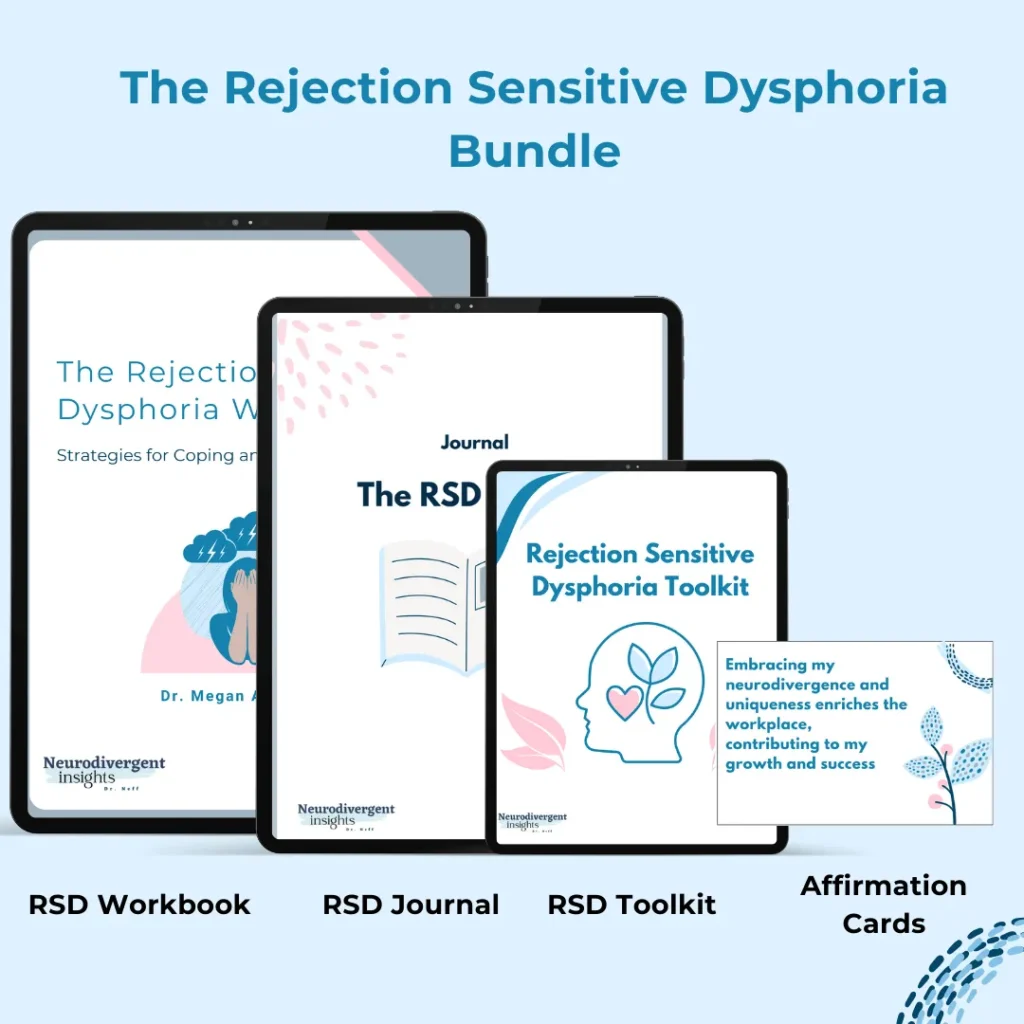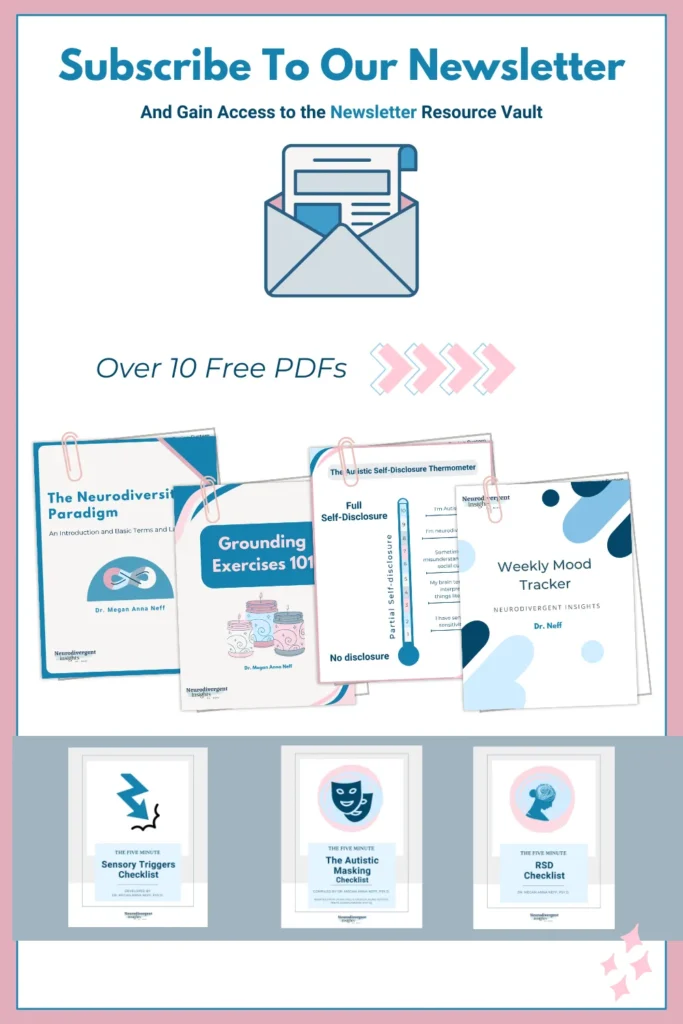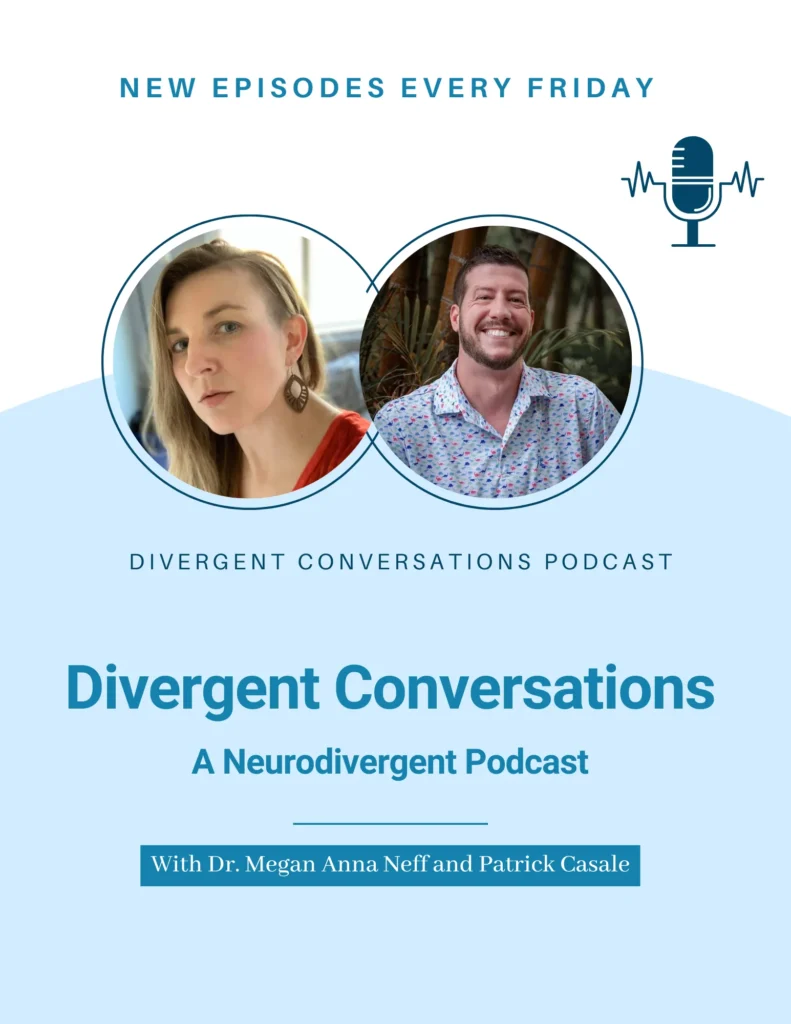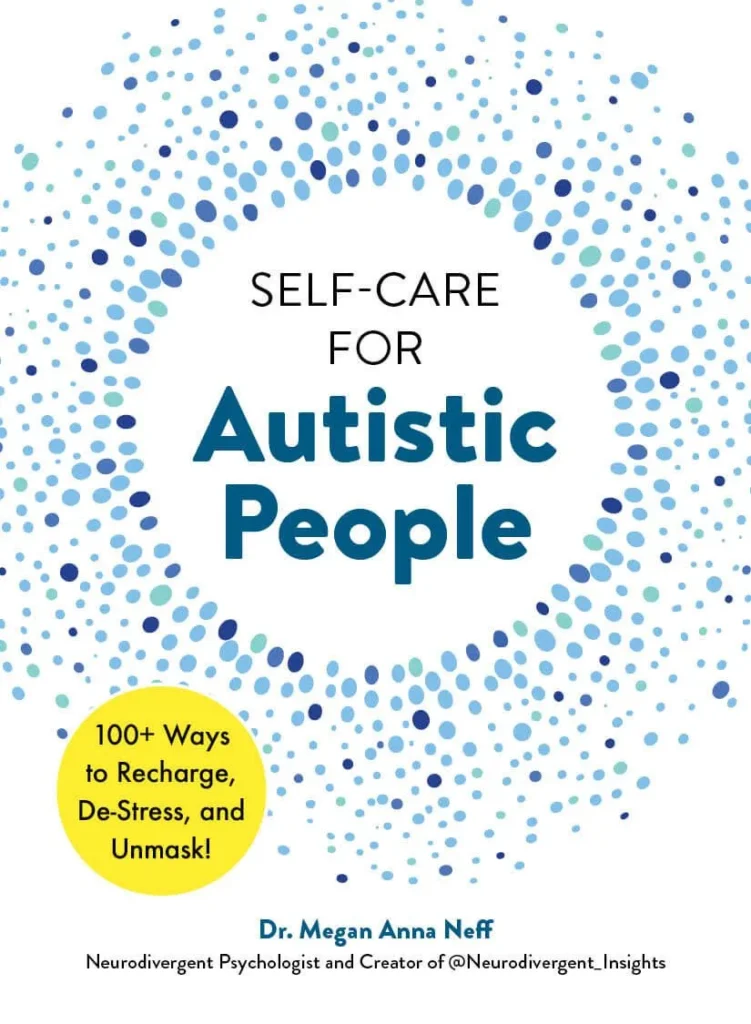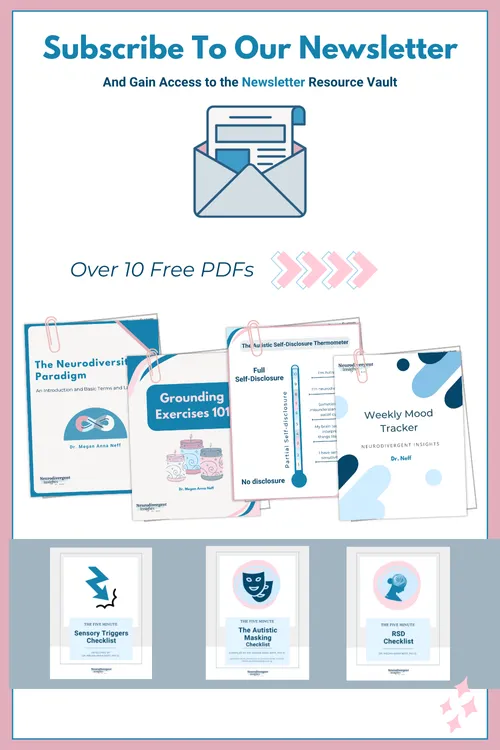
Autism Screeners: A Neurodivergent Clinician’s Review
Following is a roundup of commonly used Autism screeners for adults. When an adult begins to suspect they may be Autistic, there is a natural unfolding. The more I have observed this, I see a common pattern emerge. The pattern looks something like this:
Hear something about Autism that resonates (either from a friend or social media)
Begin googling Autism and following people on social media
Hear more that resonates, the dots are connected, and the person’s life starts making sense for the very first time
They google more and find online screeners. They complete them multiple times due to Autistic imposter syndrome
Listening to Autistic stories, reading about autism, and taking screeners are all important data points to consider when exploring Autism. My personal journey of Autistic self-discovery involved many online screeners. And I took most of them several times (each time trying to answer them more conservatively just to be sure I wasn’t exaggerating my experiences).
For many people, doing online autism screeners is one of the significant data points in their journey. Some may continue the journey through a formal assessment, while others will self-identify as Autistic. Whether seeking a formal diagnosis or self-discovery, online autism screeners can be a powerful step in the journey.
Disclaimer: One note about screeners. Screeners are intended as just one data point. For context, when I am making a formal diagnosis, I consider multiple data points across multiple contexts. Any screener or instrument should be seen as ONE data point and doesn’t quantify as a medical evaluation. This post is for educational purposes only and does not substitute for medical advice.
Top 6 Online Autism Screeners
Following is a review of my top 6 favorite screeners for Autism. In addition to finding these personally useful, I also include these in formal assessments I complete.
The Autism Quotient (AQ)

A standard screener for Autism includes 50 questions and measures how many Autistic traits a person has.
Pros: It has been widely used in many populations and studies—one of the few screeners specifically created for Autistic adults without co-occurring intellectual disabilities.
Cons: It may miss high-maskers, extroverted Autistic people, or imaginative Autistic people.
Link: The Autism Quotient
Camouflaging Autistic Traits Questionnaire (CAT-Q)
 The CAT-Q measures the level of Autistic camouflaging (masking, social compensation, and assimilation).
The CAT-Q measures the level of Autistic camouflaging (masking, social compensation, and assimilation).
Pros: It helps identify Autistic people who do not currently meet diagnostic criteria due to their ability to mask their autistic traits.
Cons: There are reasons other than autism that a person may have a high masking score. CAT-Q may have a higher rate of false positives.
The Ritvo Autism Asperger’s Diagnostic Scale: RAADS

Designed to identify adults who may have previously been diagnostically missed.
Pros: Focuses more on internal experiences than outward behaviors. Has a high sensitivity, which is good for distinguishing Autism from other conditions (Bipolar, PTSD, Social Anxiety).
Cons: Long administration with a complex answer structure. Many dislike how questions are phrased.
Link: The Ritvo Autism Asperger’s Diagnostic Scale: RAADS (You will need to first go to Aspie.org website and then click on RAADS link).
The ASPIE Quiz
The Aspie Quiz measures Autistic and neurotypical traits in five domains: talent, perception, communication, relationship, and social.
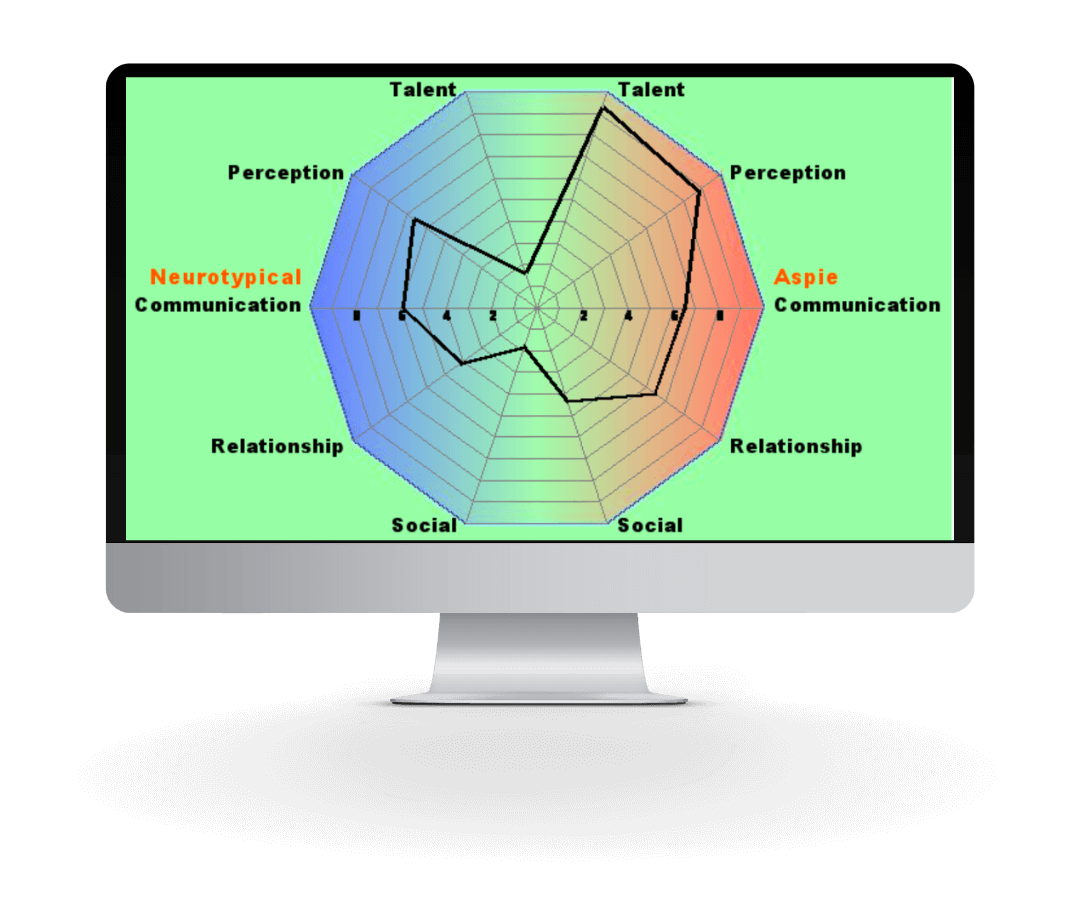 Pros: Avoids pathologizing language! Respectful and clearly worded questions. Detailed and visual feedback that is very Autistic friendly and easy to understand.
Pros: Avoids pathologizing language! Respectful and clearly worded questions. Detailed and visual feedback that is very Autistic friendly and easy to understand.
Cons: Has not been independently validated in a clinical setting and is not widely recognized within the medical establishment.
Link: The Aspie Quiz (you will need to register and provide demographics to see results).
Adult Repetitive Behaviours Questionnaire-2 (RBQ-2)

The RBQ-2 measures the degree of repetitive behavior and restricted interest (criteria B).
Pros: Language is respectful and clearly worded. While most screeners focus on criteria A, this measurement captures Criteria B of Autism, which helps distinguish Autism from social anxiety, PTSD, and more.
Cons: No cons to note. One consideration is that ADHD may impact scores. Autistic-ADHDers may have lower scores here.
Link: Adult Repetitive Behaviours Questionnaire-2 (RBQ-2)
Online Alexithymia Test
 The Online Alexithymia test measures the degree of alexithymia traits in 7 different categories. The questionnaire is not specifically an autism screener. However, many Autistic people have Alexithymia (difficulty identifying emotions), so this can be a helpful screener.
The Online Alexithymia test measures the degree of alexithymia traits in 7 different categories. The questionnaire is not specifically an autism screener. However, many Autistic people have Alexithymia (difficulty identifying emotions), so this can be a helpful screener.
Pros: Breaks up alexithymia scores into several different subcategories. Helpful for building insight into your emotional experience.
Cons: Not a screener for Autism. It can be difficult to understand the meaning of the subcategories provided on the results page.
Link: Online Alexithymia Test
Want to learn more?
Here were some of my favorite books early in my Autism discovery process (Disclaimer: affiliate links):






